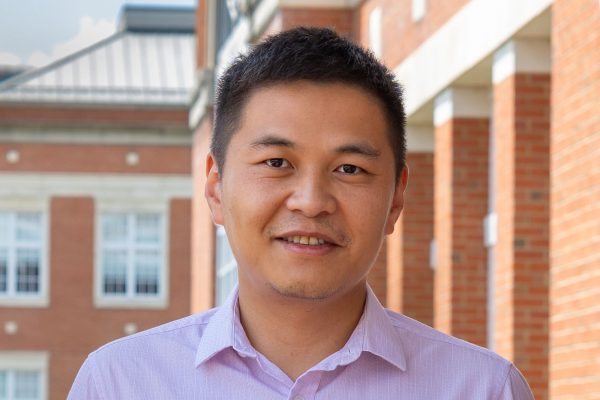Building the blueprint for clean energy materials

Qiang Zhu, associate professor of mechanical engineering, leverages informatics, computational research and modeling to advance the understanding of organic materials, directly leading to greater ability to generate clean energy. Zhu earned both an NSF CAREER Award and a Department of Energy Early Career Award which are furthering his studies at William States Lee College of Engineering.
In the past, organic materials have been receiving growing attention for their promising application in energy storage and transmission. However, clean energy generation often comes with extreme conditions. To withstand these harsh conditions, new, stronger organic materials are needed. Scientists work to develop those materials by targeting then adding certain physical properties. However, molecules with different shapes can be packed in an enormous number of ways in the three-dimensional space of the solid states. This seemingly unlimited variety of structures makes systemic, predictive modeling, and thus materials development, exceptionally difficult.
To address this challenge, Zhu is developing a new infrastructure through informatics and modern crystallography, or studying how atoms are arranged. Zhu’s research focuses on the development of various computational methods and codes for materials discovery using computer modeling, materials informatics and various physical simulation techniques, such as electronic structure calculation, molecular dynamics, and more.
Zhu’s investigations will ultimately support greater success for materials development as they encounter the extreme conditions involved in clean energy generation.
Zhu also brings with him a U.S. Department of Energy Early Career Award that will support his work that ultimately has implications for inorganic materials used in energy research activities.
Zhu joins UNC Charlotte as part of a cluster hire funded by Engineering North Carolina’s Safe and Secure Future, the state investment designated to support faculty and other resources needed to expand research and enrollment in computational engineering.